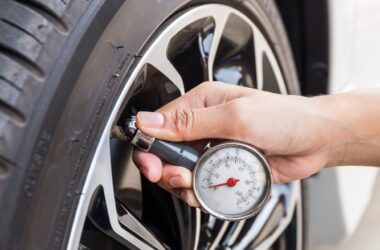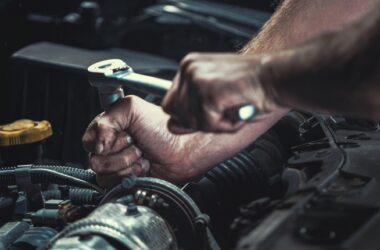[ad_1]
Car Maintenance: A Guide to Keeping Your Vehicle in Top Shape
Owning a car is a significant investment that requires regular care and maintenance to ensure its longevity and optimal performance. Neglecting regular maintenance can lead to costly repairs down the line and compromise your safety on the road. In this article, we will provide you with essential tips and guidelines for maintaining your car.
Regular oil changes are essential in keeping your engine running smoothly. Engine oil lubricates all the moving parts, reduces friction, and protects against wear and tear. Over time, oil becomes contaminated with dirt and debris, losing its effectiveness. By changing your oil every 3,000 to 5,000 miles (depending on your vehicle and the type of oil used), you can prolong the life of your engine and improve fuel efficiency.
Check your tires regularly for proper inflation and wear. Underinflated tires not only reduce fuel efficiency but also pose a safety risk. Use a tire pressure gauge to monitor the pressure and inflate them to the recommended level listed in your vehicle’s manual. Additionally, inspect the tire tread regularly. Worn-out treads reduce traction and can result in dangerous handling, especially on wet surfaces. Replace your tires when the tread wears down to 2/32 of an inch or less.
Brake maintenance is crucial for safe driving. Inspect your brake pads regularly for thickness and signs of wear. Brake pads should typically be replaced when the material thickness falls below 1/4 of an inch. Don’t forget to check your brake fluid level and have it flushed and replaced at the manufacturer-recommended intervals. Faulty brakes can compromise your ability to stop, potentially leading to accidents.
Fluid levels in your car should be regularly checked and topped up. These include engine coolant, power steering fluid, transmission fluid, and windshield washer fluid. Each of these fluids plays a vital role in the proper functioning of your vehicle. Neglecting fluid maintenance can result in overheating, poor steering response, and reduced visibility.
Air filters prevent dirt, dust, and debris from entering the engine, providing clean air for combustion. Over time, these filters become clogged, reducing engine performance and fuel efficiency. Regularly inspect and replace your air filter to maintain optimal engine performance.
To keep your car’s exterior looking great, wash it regularly and apply wax to protect the paintwork. This not only preserves the aesthetics of your vehicle but also prevents corrosion caused by dirt and debris. A clean car also ensures better visibility through windows and mirrors, enhancing safety when driving.
Schedule professional inspections and tune-ups at regular intervals. A trusted mechanic can identify potential issues before they become major problems. They will check your battery, belts, hoses, spark plugs, and other components to ensure they are in good condition. Regular maintenance not only helps prevent breakdowns but also prolongs the lifespan of your car.
Lastly, don’t overlook the importance of safe and responsible driving. Avoid aggressive acceleration and braking, as these put unnecessary strain on your vehicle. Observe speed limits and drive within your car’s capabilities. Safe driving practices can significantly reduce wear and tear on your vehicle, ultimately saving you money and hassle.
In conclusion, regular car maintenance is imperative to keep your vehicle in top shape. By following these guidelines for oil changes, tire maintenance, brake care, fluid checks, air filter replacements, exterior cleaning, professional inspections, and responsible driving, you can ensure the longevity and reliability of your car. Remember, prevention is always better than cure, and regular maintenance will spare you from costly repairs and ensure your safety on the road.
[ad_2]







